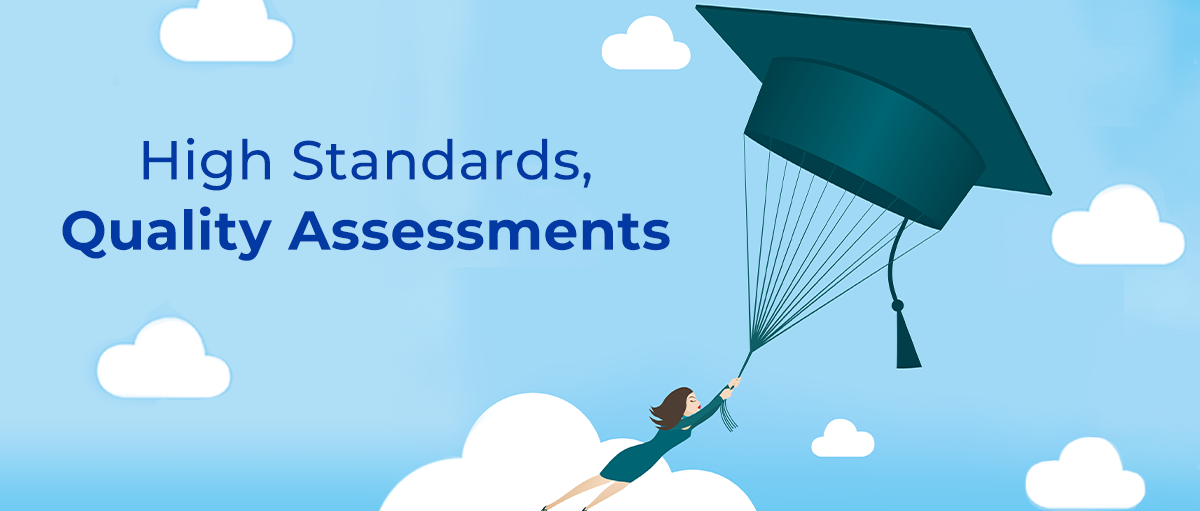Collaborative for Student Success Announces New Tool for Student Proficiency Data

Assessment HQ Will Provide Greater Transparency to Facilitate Student Growth
Washington, D.C. (August 14, 2019) – Today, the Collaborative for Student Success launched Assessment HQ, a unique online platform that takes the guesswork and risk of misinformation out of understanding state annual assessments by providing transparency on student proficiency and state testing decisions. For the first time, student proficiency data for more than half of states in grades 3-8 will be publicly available online, and in one location, for anyone to view and use.
Assessment HQ highlights state-reported student performance results in mathematics and English language arts (ELA) by student demographics. For too long this information has been difficult to locate and understand. The new site allows users to see which annual assessments are used in states, trends in student proficiency in individual states and observe the performance of student groups, like African American and Hispanic students. Only by exploring trend data on these students can we ensure they are making real progress. Assessment HQ enables understanding of how college-ready standards and high-quality annual assessments help advance and inform policies related to educational equity and student achievement across the country.
“The assessment landscape is constantly changing—with states adjusting vendors, new proficiency data, and debates on proper accountability. We’re hopeful that this platform will help cut through much of the uncertainty around tests by offering a clean, consolidated look at actual state-reported information,” said Jim Cowen, Executive Director of the Collaborative for Student Success.
While annual assessments can always be improved, they are one of the best tools we currently have to provide an honest check on states to ensure that the decisions and policies impacting young people are grounded in evidence and real results. They are particularly important for those students who are most vulnerable or who have been historically underserved by education systems. Not only do assessments help level the playing field, but they also help ensure that schools are preparing students for college or career.
Along with being able to view student proficiency data, Assessment HQ will also include:
- A dynamic map that features information of which assessments each state has used in the past four years for grades 3-8.
- Original commentary provided by Dale Chu, a former teacher, and educational policy expert who has led work in both the Florida and Indiana Departments of Education.
About the Collaborative for Student Success
The Collaborative for Student Success is a nonprofit advocacy organization that works to defend high standards, high-quality assessments, and strong systems of accountability to ensure that all kids are prepared for college or career. Through capacity-building efforts with in-state organizations and collaboration with national partners, we promote fact-based public discourse and fight to advance policies that promote best practices and ensure equitable outcomes for all students.
Assessment HQ is a unique online platform that takes the risk of misinformation out of understanding state annual assessments by providing greater transparency.
About the Collaborative for Student Success
At our core, we believe leaders at all levels have a role to play in ensuring success for K-12 students. From ensuring schools and teachers are equipped with the best materials to spotlighting the innovative and bold ways federal recovery dollars are being used to drive needed changes, the Collaborative for Student Success aims to inform and amplify policies making a difference for students and families.
To recover from the most disruptive event in the history of American public schools, states and districts are leveraging unprecedented resources to make sure classrooms are safe for learning, providing students and teachers with the high-quality instructional materials they deserve, and are rethinking how best to measure learning so supports are targeted where they’re needed most.

